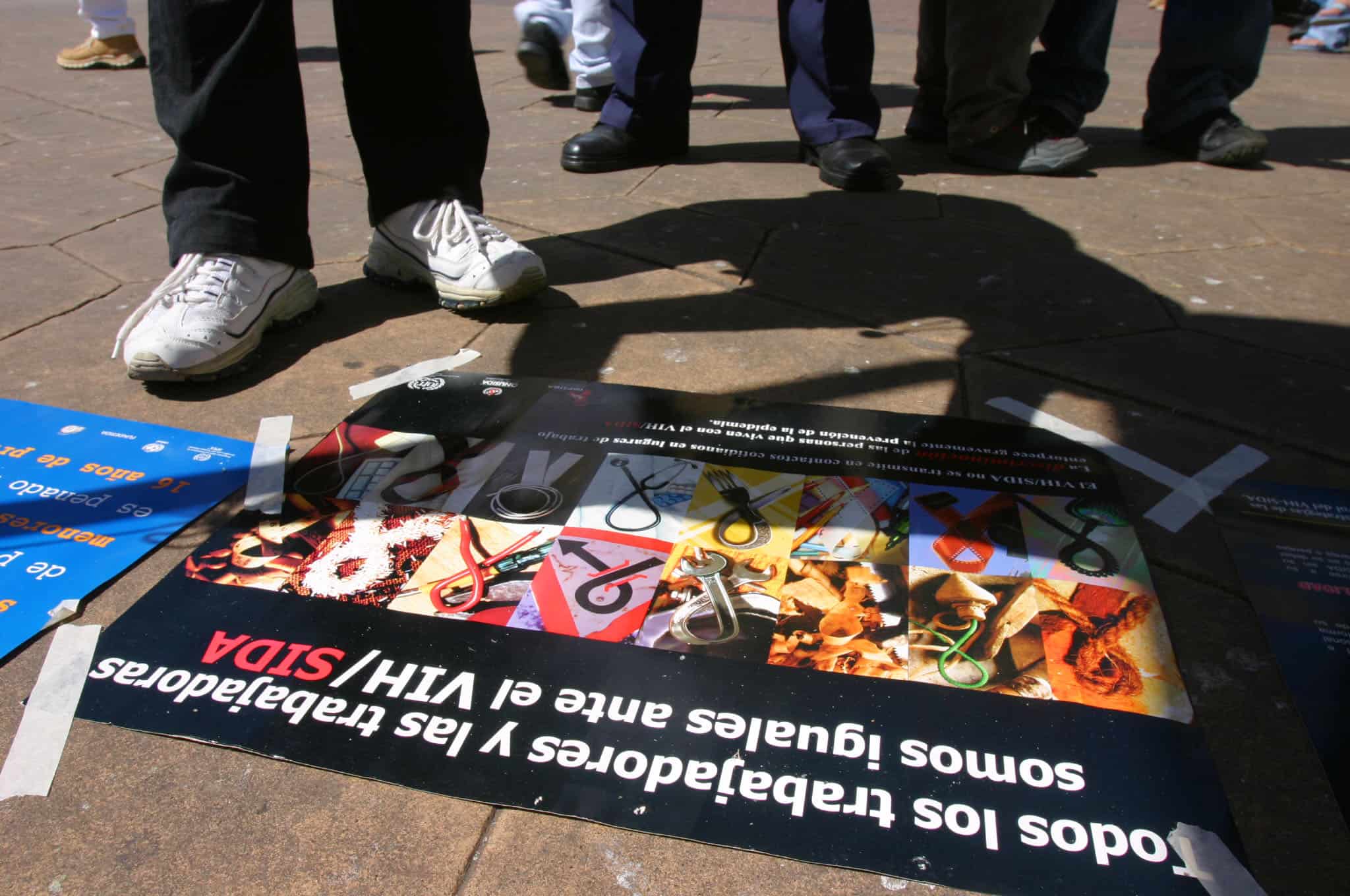Nearly half of all HIV-positive people in Costa Rica are unemployed or not looking for work, according to a recent survey. The results were first published on Nov. 27 amid several events leading up to World AIDS Day on Monday.
An HIV and AIDS awareness parade took place in San José on Saturday, and on Monday the Costa Rican Social Security System is hosting a free event in Parque Central from 8:30 a.m. to 1 p.m., where they will provide rapid results HIV tests, information about the virus, free condoms and health advice.
Juan Carlos Zamora, director of the Costa Rican Demographic Association that carried out the study, told The Tico Times that the unemployment rate is one of several alarming results they discovered. Zamora said a constellation of factors contribute to the dire economic conditions in which many people with the immunodeficiency virus find themselves, from missed job opportunities to pressure to leave their neighborhoods or places of work, to health complications that could prevent them from working. For example:
- 25 percent of HIV-positive Costa Ricans could not afford to eat for at least one day during the last month.
- 12 percent reported passing 10 days during the last month when at least one person in the family did not have money to buy food.
The director said that lingering ignorance about HIV and AIDS contributes to discriminatory practices by many Costa Ricans that complicate the ability to earn a living. A study in June by the University of Costa Rica of over 3,000 Ticos found that 75 percent of respondents did not know how HIV is transmitted or contracted. Only 18.2 percent of Ticos aged 15-17 demonstrated comprehensive understanding of the disease. Knowledge of HIV and AIDS increased after age 18, but remained below 26 percent for respondents aged 18-35, according to the study funded in part by the president’s Emergency Plan for AIDS Relief, PEPFAR.
These same anxieties spill over into respondents’ private lives, too:
- 52 percent said they had been excluded from family activities.
- 39 percent spoke of exclusion from social events.
- 30 percent said they were excluded from religious activities.
Current labor laws do not offer employment protection for people with the infection or its syndrome, but that might soon change. In November, Vice President Ana Helena Chacón hosted an event at Casa Presidencial to announce a new bill, which is currently under debate in the Legislative Assembly’s Human Rights Commission, that would allow patients to not disclose their HIV status and prevent workplace discrimination based on an employee’s HIV status. Some 15 percent of those surveyed for the ADC report said that a health worker had disclosed their HIV status to others without their consent.
More than 9,800 Costa Ricans over 15 years old have HIV as of 2013, according to estimates from ONUSIDA. The Costa Rican Social Security System, known as the Caja, reported that 6,218 people have HIV in Costa Rica. Public hospitals diagnosed 694 new cases in the last year, the agency reported Thursday.
Men remain the group most affected by the virus in Costa Rica, representing 80 percent of the cases, according to the Health Ministry. Men who have sex with men are the group most at risk for infection. The rate of HIV infection has grown here between 2002 and 2013, from 8.6 to 14.6 per 100,000 inhabitants.






